“Pop Goes The 80’s” @ Rhyl’s Little Theatre, Sunday 29th June 2017
The energy in the theatre as the full house audience waits for the curtain to rise can only be described as hyper.
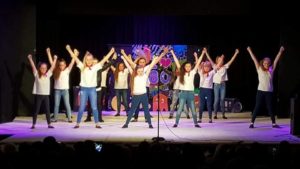
This is pretty standard for a Jaxx Martine Popstarz Academy show – because no matter what – you know for the next hour and a half your heart is going to burst with pride, and be blown away by the amount of hard work, dedication and talent that has gone into this show. This is not down to luck, this is clever planning and hours of dedication given by the two principle teachers Paula and Steve Duncan .
I am no stranger to this community group, I worked along with the Duncan’s four years ago in a local school on a performance workshop – the children involved were keen to have an outlet to express themselves and there was nowhere locally for them to do it. Around the same time the Duncan’s were looking for somewhere for their daughter to attend a drama class and found the nearest one to be a 30 minute drive away – So The Duncan’s thought;
“Why not try this ourselves, give our local children somewhere they can go….. if it works, it works out, if not it’s a bit of fun”
Professional performers themselves, working the circuit as singers and presenters, they have the skills and experience needed to deliver quality workshops and an ability to bond with the children. Four years later the small group of 17 has now expanded with a growing waiting list. They have moved from performing sharing sessions with parents to producing two shows a year in Rhyl’s Little Theatre, which despite it’s name seats a 190 plus audience. They also perform in one off shows including “Got to Sing Got to Dance” which showcases the community youth groups from the local areas in and around North Wales joining together and performing in Rhyl Pavilion Theatre for the charity Happy Faces. Paula has stated this was one of her proudest moments along side the children’s big production last year of a fantastic version of Willy Wonka.
This year with the help of Steve’s impressive Marty Mcfly impression we were taken back to the 80’s
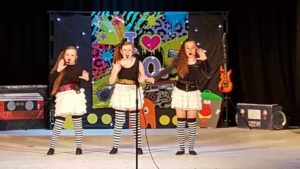
The group sees children from ages 4 to 17 perform and the principles cater for all age ranges ensuring all children appear on stage more than once – this is no mean feat…. and the show itself was well crafted, this was not just a handful of 80’s pop songs performed by some school children, this was a delightful trip down 80’s lane. Full of comedy, including sketches from TV shows, adverts and dance. Naturally there were different levels of abilities, but, this became part of the charm. For example the cuteness and humour factor was used with the younger children. Understandably four to seven year olds are not going to give flawless Broadway performances ….. but who could not enjoy watching 4 mini Ghostbusters in full kit being chased around stage by bum shaking, tongue pulling ghosts?
The costumes were very realistic – I wanted to rush home read Smash Hits and pop on some lace gloves and plastic beads (Madonna). Other 80’s favourites included. White T shirts, red neckerchiefs (Bros)… Red cheerleaders (Hey Mickey) Green flared shirt high blonde pony (The shake and Vac Ad) Heely rolling, cartwheeling, old ladies (Super Gran)…. to name but a few…
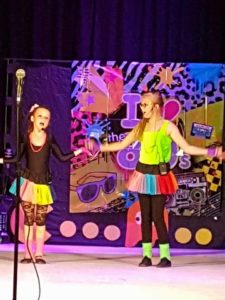
The confidence of the children was one of the things I took away from the night, there were several solos and duets, to stand on an empty stage and sing solo to a full house takes some doing – this doesn’t just happen over night, this comes from having your talent nurtured , you don’t get that from reading a book or sitting on a computer. Each of the children performed to the best of their abilities all giving 100%.
However, It would be wrong not to comment on some stand out performances as there were some truly beautiful pieces, Stevie Duncan, daughter of Paula and Steve singing Fame was effortless and faultless, Lucas King (an up and coming Peter Kay) singing Bad with a bevy of beauties, A mini Hi Di Hi skit and Flashdance as a duet featuring a set of dancers. Demonstrating without doubt that this little community group delivers and is not your average Saturday club but is a little Performing Arts Academy. .
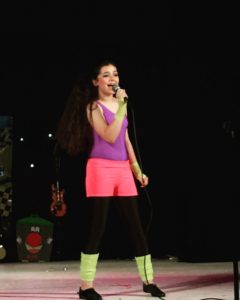
I caught up with two of the cast back stage Lucas King and Ruby Howarth I asked Ruby why she enjoyed Popstarz, (pictured below)
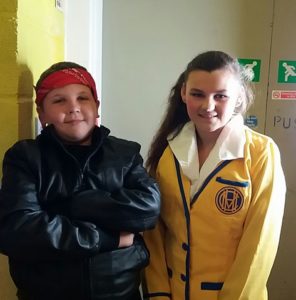
“I love the group, and Paula and Steve and all the friends I have made. I love everything we do but most of all I love the confidence it has given me”
Lucas has been with the group since it started four years ago and said’
“I really enjoy all the auditions we get to do, singing and acting is great fun, I love being on stage. I have been on stage lots of times In the last show we did I played Grand Pa Joe in Willy Wonka which was really good because it was a funny part and I love doing comedy”
For this particular production the hair on the back of your neck moment came when the 95 strong group performed together in their finale “Man in the Mirror” full of harmonies and emotion. You could see every child had had a blast on stage, topped off by an tearful Paula thanking everyone and making a very valid point . Paula was 20 when she first sang on stage – some of the children performing were babies.
That filled me with a sense of hope especially as earlier in the week I had read a disappointing article on Theatre In Education.
http://howlround.com/valuing-process-over-product-producing-theatre-in-educational-settings
The article states how some community theatre groups and theatre in educational establishments would rather replace the children with professional actors or the children with more ability than the children with less – how is that producing COMMUNITY THEATRE ??? I feel the whole point is it that it isn’t professional. However it is the foundation for professional theatre, a place where talent can be found and grown.
Thankfully Popstarz is not that type of group and it allows all the children to shine – this group isn’t rare, but they are not common enough. Many areas have tailor-made theatre groups for children some even follow set programmes, which could encourage the type of performance snobbery suggested in the above article . They are often situated in towns or cities usually after school so access to these would typically need to be by car. Schools and local authorities do encourage instructors to come into to give taster sessions but unless what is on offer to these children can be accessed on their doorstep – what point is there?
This is not unique, a recent study in Kings College highlights my views and suggests this type of regeneration is the way forward for art in the future, and this type of community group is, in my opinion, is where arts funding should be focused.
A recent Guardian Article states
https://www.theguardian.com/books/2017/jun/30/excellence-arts-should-not-be-defined-by-metropolitan-elite?CMP=share_btn_fb
“Only 8% of the population makes regular use of publicly funded cultural organisations, and this small minority is wealthy and white”.
So are arts grants working for the minority or the majority ? Are they opening doors to the arts? If they are they are still ensuring a guest list is being held – and if “your name isn’t down your not getting in.”
Instead of being helped by traditional arts grants the likes of small groups like Popstarz have to look else where for support. Another example, The Little Theatre in Rhyl, where Popstarz perform , a delightful theatre that hires out to community groups for a minimal fee, yet the building its self is in need of dire repair – and where is it turning for help – begging for votes for the Jewsons Grant scheme! Popstarz were recently awarded a grant by a local Housing Association for the good work they have done in the community .They have to fight for everything…. it doesn’t stop them succeeding …. but imagine what they could do with funding!!
Nick Wilson and Jonathan Gross report on a group of street dancers, their story is similar to that of Popstarz.
“Several of this group first encountered break dancing at school through an instructor brought in to run lunchtime sessions. This instructor connected the students to dance sessions provided free of charge by the local authority …… They had access to space, a friendly and supportive environment and informal mentoring from more experienced dancers.
Some now earn income through teaching break dancing in schools, prisons and at children’s birthday parties; and one member of the group spent several years dancing full-time…..”
Success brings success from performing in their little youth club space to performing on a professional stage. These children have been introduced to the theatre. Showing them that the theatre is a place where magic happens, it shows them the stage from the wings No one can tell you how that will make you feel, you need to experience it , how can you experience it if you are never given the chance ?
Our future audiences, actors, directors, playwrights etc, where are we going to find them and what voice will they have if they only come from one background ? Perhaps more importantly the reason funding should be made easily accessible to community groups is because of what they are doing . Ensuring theatre survives, showing that the theatre is a place to love, out of these children realistically maybe a quarter will continue with the arts in some form and hopefully some will continue to have successful careers as performers or may go on to teach the next generation of Popstarz. Whatever their story one thing is certain, almost all of them will hold a love for the theatre in some form and undoubtedly be an audience for the future – something that this generations theatre is sadly lacking.
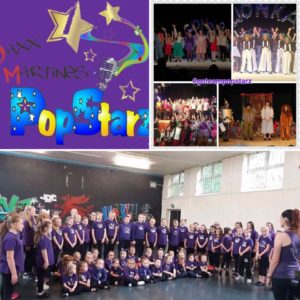
If you would like to know more about Rhyl’s Little Theatre or Jaxx Martine Popstarz you can visit their Facebook pages
https://www.facebook.com/JaxxMartinesPopstarzAcademy/?ref=page_internal
https://www.facebook.com/groups/929362840449463/?ref=group_header
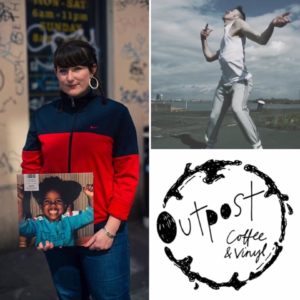

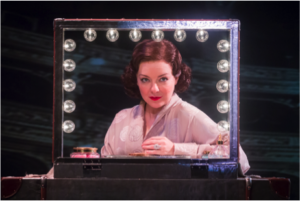
 (5 / 5)
(5 / 5)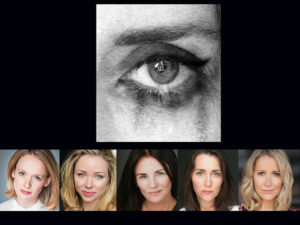
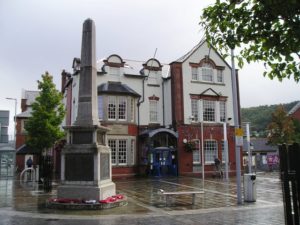


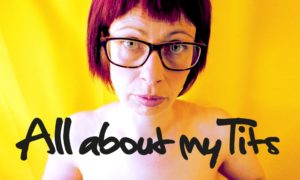
 (3 / 5)
(3 / 5)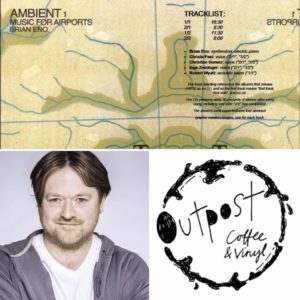
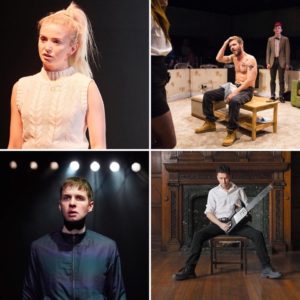
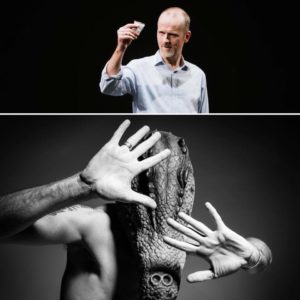
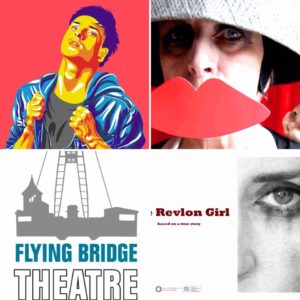
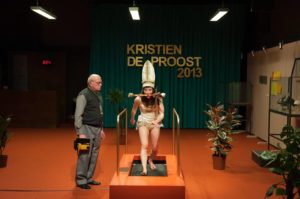
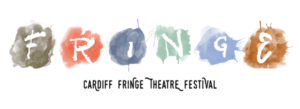
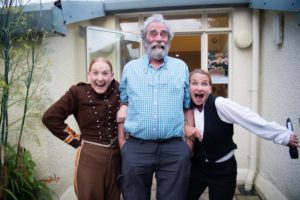
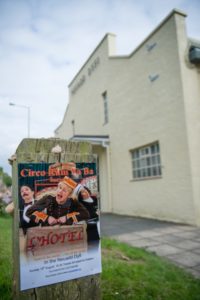
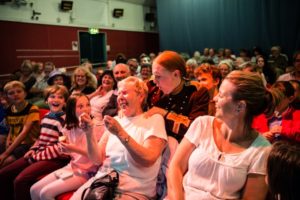
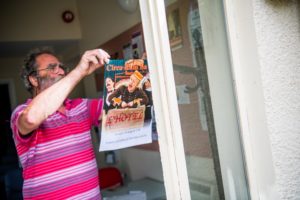
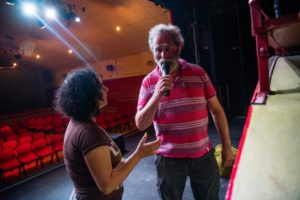
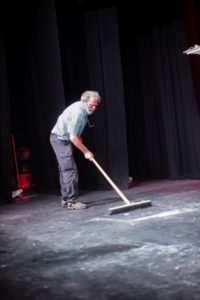

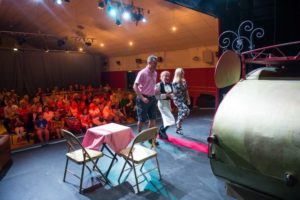
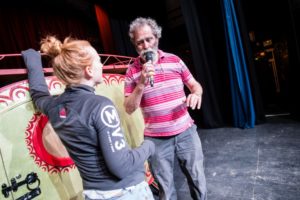
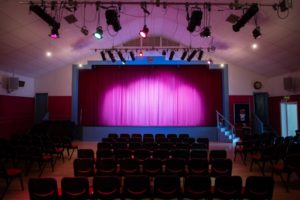

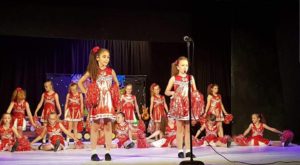





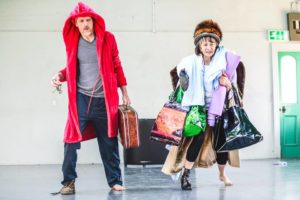
 (4 / 5)
(4 / 5)